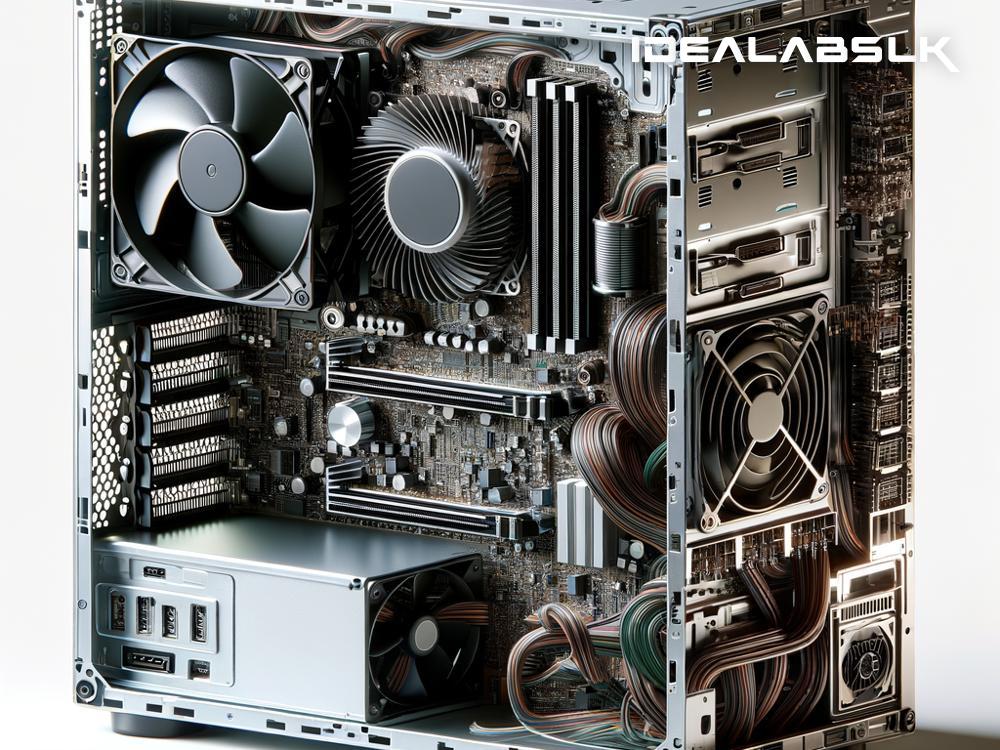How to Solve 'PC Fan Making Noise' Issue: A Step-by-Step Guide
Are you constantly disturbed by the annoying noise your PC fan makes? Whether you're trying to focus on work, dive into your favorite game, or enjoy a movie, a noisy PC fan can quickly ruin the experience. But worry not! In this guide, we'll explore some simple solutions to address this common issue. Let's dive in and quieten that bothersome fan!
Understand the Noise
Firstly, it's important to understand what type of noise your PC fan is making. Is it a constant whirring, a grinding sound, or more like a buzzing noise? Identifying the type of noise can help pinpoint the issue. Constant whirring might simply mean your fan is working hard, while grinding or buzzing noises could indicate that something's obstructing the fan or it's beginning to fail.
Step 1: Clean Your PC Fan
Dust and debris are often the main culprits behind a noisy PC fan. Over time, dust accumulates in your computer, clogging the fans and making them work harder (and louder).
- Turn Off Your PC: Always start by turning off your computer and unplugging it from the power source.
- Open the Case: Carefully open your PC’s case to access the fans.
- Clean the Fans: Use a can of compressed air to gently blow away the dust from the fan blades and surrounding area. For stubborn grime, a soft, dry brush can help loosen the debris.
Step 2: Check for Obstructions
Sometimes, cables or other components may get in the way of the fan, causing it to make noise as it spins. Inspect the area around the fan to ensure there’s nothing obstructing its movement.
- Rearrange Cables: If any cables are touching the fan, gently reroute them away from it.
- Remove Obstructions: Make sure there’s nothing blocking the air vents on the case, as restricted airflow can cause the fan to work harder.
Step 3: Verify Fan Alignment
A fan that’s not properly aligned can also produce noise. Ensure the fan is securely mounted and that it sits flush with its housing. If the fan wobbles, tighten its screws, but be careful not to over-tighten, as this could cause damage.
Step 4: Lubricate the Fan
Fans can become noisy when their bearings dry out. Most fans have a sticker on their underside covering a lubrication hole.
- Access the Lubrication Hole: Carefully peel back the sticker on the fan.
- Add Lubricant: Use a single drop of light machine oil (like sewing machine oil) to lubricate the fan. Avoid household oils, as they can attract more dust.
- Replace the Sticker: Seal the lubrication hole by replacing the sticker.
Step 5: Control Fan Speed
Sometimes, the solution is as simple as adjusting your fan’s speed. Too fast, and the fan might produce unnecessary noise.
- Adjust BIOS Settings: Reboot your PC and enter the BIOS. Look for fan settings that you can adjust to lower the speed without compromising cooling.
- Use Software Solutions: There are software programs available that allow you to control your fan’s speed directly from your desktop.
Step 6: Consider Replacement
If your fan is still noisy after trying the above steps, it might be worn out or damaged. In this case, replacing it is the best solution.
- Choose the Right Replacement: Make sure the new fan is compatible with your PC model.
- Install Carefully: Remove the old fan, being cautious of static electricity, and install the new one following the manufacturer’s directions.
Prevention Tips
To avoid noisy fan issues in the future, consider these tips:
- Regular Cleaning: Dust your computer regularly to prevent buildup.
- Adjust Settings: Keep an eye on your PC’s temperature and adjust fan speeds as necessary.
- Proper Ventilation: Ensure your computer has plenty of space around it for adequate airflow.
Conclusion
Dealing with a noisy PC fan can be frustrating, but it’s usually a fixable problem. By following these simple steps, you can diagnose the issue and find a solution that works for your situation. Whether it’s a quick clean, a minor adjustment, or a complete replacement, there’s no need to endure the annoying fan noise any longer. Take action today and enjoy the sound of silence (or at least, a much quieter computer)!

